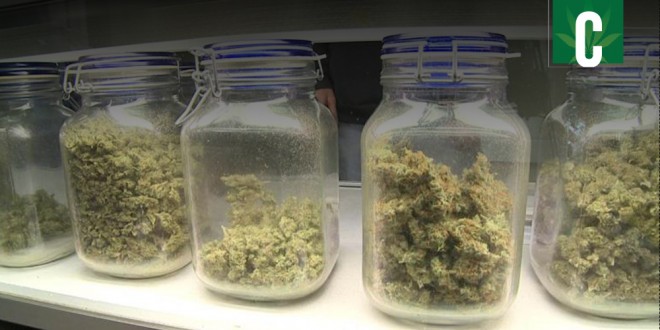A new report suggests California should impose tight regulations on cultivation, distribution, and sale of marijuana should voters legalize the drug in November.
 The Public Policy Institute of California published the report in April, saying the state will need to draft “robust licensing and tracking systems” for a legal cannabis industry. The rules should reflect those adopted in Colorado and Washington, the group said.
The Public Policy Institute of California published the report in April, saying the state will need to draft “robust licensing and tracking systems” for a legal cannabis industry. The rules should reflect those adopted in Colorado and Washington, the group said.
Like those states, California should use “seed to sale” technology to track marijuana supply from growers to stores selling the drug for recreational or medicinal use, the institute said in the report. Both Colorado and Washington employ such systems.
Colorado uses a Marijuana Inventory Tracking System, while Washington uses BioTrack THC software. Seed to sale technology in both states tracks every stage of the marijuana industry, including growers, processors, testers, and retailers.
New regulations reached MMJ market last year
California Gov. Jerry Brown signed tight new regulations on medical marijuana last year, empowering the state to issue 17 types of industry licenses. They include pot shops, testing laboratories, and marijuana farms, among other businesses.
The legislation created a Bureau of Medical Marijuana Regulation to be funded with $10 million in taxes and fees. Rules governing the bureau have yet to be drafted, including the specifics of industry taxes.
The report’s co-author Patrick Murphy said California should start by drafting meticulous rules that “err on the side of more restrictive regulation.”
“The fundamental fact is, from a political perspective, it would be easier to loosen a tight market than tighten a loose one,” Murphy said in a press release.
Voters likely to legalize in November
 But the report doesn’t speak to whether voters would be wise to legalize marijuana for recreation. Polls suggest that should the question appear on the ballot in November, voters are likely to approve it.
But the report doesn’t speak to whether voters would be wise to legalize marijuana for recreation. Polls suggest that should the question appear on the ballot in November, voters are likely to approve it.
Murphy said regulations concerning high driving should create “an accurate, practical test for marijuana that can withstand court scrutiny.” Researchers have been working to develop a workable Breathalyzer machine for cannabis intoxication.
At least one legalization initiative, known as the Adult Use of Marijuana Act, is likely to appear on the ballot. That campaign is headed by tech billionaire Sean Parker, former president of Facebook, who has donated more than $1 million to the effort.
If the intitiative passes, it would make it legal for adults to buy, possess, and use up to an ounce of marijuana. It would impose a 15 percent sales tax on the drug, plus separate taxes on commercial cultivation.
Parker’s plan would outlaw high driving but would not set specific standards for the amount of THC allowed. The Public Policy Institute report suggests the initiative doesn’t go far enough on that front.
Medical marijuana is legal in California, but recreational cannabis is not. Four states – Colorado, Washington, Alaska, and Oregon – have legalized the drug completely, as have voters in the District of Columbia.
Parker’s proposal would create a new regulatory division under the Department of Consumer Affairs, replacing the existing Bureau of Medical Marijuana Regulaion. Whichever agency governs legal pot, Murphy said, the state will face the scrutiny of the federal government. The Department of Justice informally allows states to legalize, but only if they enforce “robust” regulations on the industry.
 California Marijuana Market Breaking "Marijuana News" from CA
California Marijuana Market Breaking "Marijuana News" from CA





